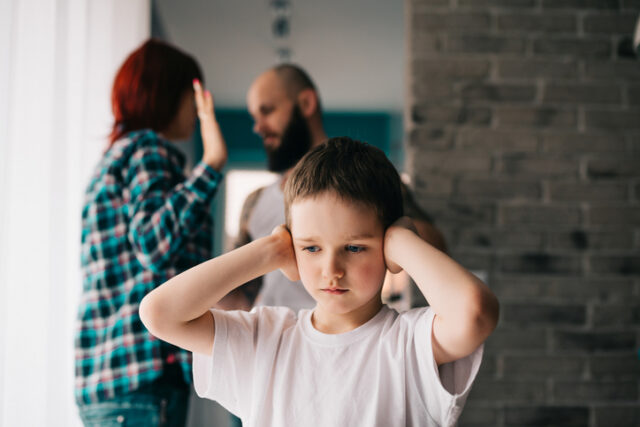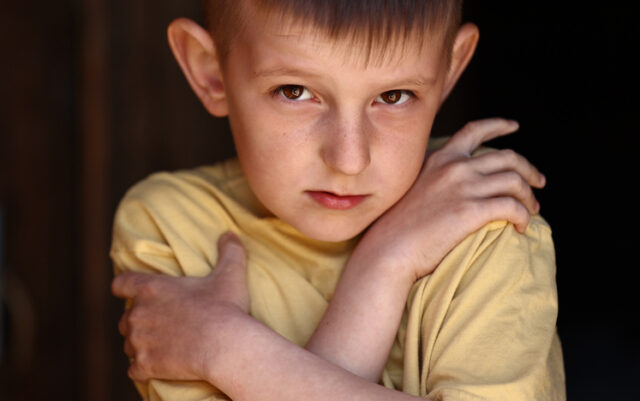Getting grounded is a common punishment for many kids, but if it happens a lot, it can shape not just their childhood, but their adult lives as well.

The way discipline was handled growing up can shape behaviours, reactions, and even relationships in adulthood. While some lessons stick in a positive way, being punished or grounded non-stop, even for the tiniest things, can also lead to patterns that follow people long after they leave home. These are just some of the traits those who were sent to their room, barred from hanging out with their friends, and had their phones or video games taken off them sometimes develop once they’re all grown up.
1. They have issues with authority figures.

Being grounded often meant having no say in the matter, which can make authority feel frustrating as an adult. Whether it’s a boss, a strict rule, or even just someone telling them what to do, there’s an instinct to push back. They’ve spent years having decisions made for them, and now they want control over their own choices. That doesn’t mean they’re constantly rebellious, but they’re less likely to blindly follow orders. They question rules that don’t make sense and prefer working independently. If they feel micromanaged, their first instinct is often to resist rather than comply.
2. They overthink mistakes.

Constant grounding often meant that mistakes led to punishment, not discussion. As adults, that can turn into a habit of overanalysing every misstep. They might replay conversations in their head, worry about how they came across, or assume the worst when something goes wrong. Instead of seeing mistakes as part of growth, they often fear the consequences. Even when no one is actually mad at them, they assume they’ve done something wrong. The pressure to avoid messing up can be exhausting and unnecessary.
3. They’re highly independent.

Spending time grounded often meant being alone, which forced them to entertain themselves. As adults, this translates into strong independence. They don’t mind doing things solo and are comfortable handling life on their own. While independence is a great trait, it can sometimes make it hard to ask for help. They’re used to figuring things out alone and don’t always think to lean on other people. Even when struggling, they might prefer to tough it out instead of admitting they need support.
4. They have a strong sense of fairness.

Frequent grounding didn’t always feel justified, and that frustration sticks. Adults who experienced this tend to care deeply about fairness, both for themselves and other people. They notice when rules feel unfair and aren’t afraid to call it out, which makes them great at standing up for themselves and advocating for other people. However, it can also mean they struggle when things don’t feel ‘right.’ Unfairness, even in small ways, can be hard for them to let go of.
5. They hate feeling trapped.

Being grounded meant being stuck, unable to go anywhere or make their own choices. As adults, they crave freedom and struggle in situations that feel limiting. Whether it’s a restrictive job, a controlling relationship, or even just too many rules, they feel uncomfortable when their options are taken away. They’re more likely to prioritise flexibility in life, whether that means working remotely, travelling often, or avoiding commitments that feel restrictive. If they sense someone trying to control them, they instinctively pull away.
6. They’re good at finding loopholes.

Getting grounded didn’t always stop them from figuring out ways around the rules. Whether it was sneaking phone calls, finding ways to leave the house, or negotiating their way out of punishment, they learned how to work the system. That skill follows them into adulthood. Now, they’re great at thinking outside the box and finding creative solutions. If a rule seems pointless, they don’t just accept it — they look for ways to navigate around it. They see restrictions as challenges rather than limits.
7. They sometimes struggle with emotional regulation.

For kids who were constantly grounded, emotions weren’t always discussed — they were punished instead. As adults, this can mean struggling to express feelings in a healthy way. Instead of talking things through, they might shut down, get defensive, or bottle up frustration. They may have learned that strong emotions lead to consequences rather than understanding. This makes it harder to process feelings in a way that feels safe. While they can be self-aware, actually expressing emotions can still feel uncomfortable.
8. They’re good at entertaining themselves.

Being stuck in their room for hours taught them how to keep busy. Whether it was reading, writing, gaming, or just staring at the ceiling and thinking, they got used to filling their own time. As adults, they rarely feel bored because they’ve learned how to entertain themselves. They often have hobbies or interests that don’t rely on anyone else. While this makes them self-sufficient, it can also mean they prefer alone time over socialising. If they’ve spent years enjoying their own company, they don’t always feel the need to have constant interaction.
9. They don’t handle guilt well.

Constant punishment can lead to carrying a lot of guilt, even when it’s not necessary. They might apologise too much, feel bad for setting boundaries, or worry they’ve upset someone even when they haven’t. The fear of being ‘in trouble’ sticks around. Even as adults, they can have a hard time separating real accountability from unnecessary guilt. They might take responsibility for things that aren’t their fault, or feel anxious when they disappoint someone. Learning to let go of guilt takes time and self-awareness.
10. They don’t always follow traditional paths.

Rules didn’t always make sense growing up, so as adults, they don’t automatically accept them. They might take unconventional career paths, challenge social norms, or find their own way of doing things. They question expectations rather than just following them. Instead of taking the ‘expected’ route, they focus on what actually works for them. This can make them innovators, entrepreneurs, or creatives who don’t fit into traditional moulds. They value doing things their way over following a set plan.
11. They avoid conflict when possible.

Getting in trouble as a kid wasn’t fun, so as adults, they often go out of their way to avoid conflict. They might be more likely to stay quiet, keep the peace, or let things slide just to avoid an argument. Confrontation feels stressful, even when it’s necessary. While avoiding conflict can keep things calm, it can also lead to suppressing feelings. Learning that disagreement doesn’t always have to be negative is something they have to work on. Finding the balance between keeping the peace and standing up for themselves is key.
12. They value freedom in relationships.

Growing up with constant restrictions can make them more protective of their personal space as adults. They don’t like feeling controlled or having someone dictate how they should live. In relationships, they need trust and independence to feel comfortable. They thrive in partnerships where they have room to be themselves. Overly clingy or controlling dynamics make them feel suffocated. If they sense someone trying to limit them, they instinctively pull away to maintain their autonomy.
13. They sometimes struggle with decision-making.

When rules were constantly decided for them, making their own choices as an adult can feel overwhelming. They might second-guess themselves, overanalyse options, or fear making the wrong move. Too much freedom after years of restrictions can be intimidating. While they value independence, actually making big decisions can be stressful. They want to be in control, but sometimes lack confidence in their choices. Learning to trust themselves takes time and experience.
14. They’re pretty adaptable.

Spending years navigating punishments, restrictions, and house rules made them quick thinkers. They learned how to adjust to different situations, whether that meant avoiding trouble, negotiating freedom, or reading the mood of the room. Now, they’re great at handling change. Adapting to new environments, jobs, or challenges comes naturally. They don’t get stuck in rigid thinking because they’ve spent years learning how to work around rules. This makes them flexible and resourceful in ways other people might not be.
15. They value fairness above all.

Being grounded for things that didn’t feel justified made them hyper-aware of fairness. As adults, they care deeply about justice, equality, and making sure people are treated properly. They hate seeing other people punished unfairly because they know what it feels like. They’re the first to speak up when something isn’t right. Whether it’s in the workplace, relationships, or society, they advocate for fairness. If something feels unfair, they won’t just let it go — they’ll push for change.




